Baking soda, also known as sodium bicarbonate, is a common household item that has a variety of uses. It is often used in baking as a leavening agent, and it can also be used to clean and deodorize household items. In addition, some people use baking soda as a natural remedy for various health issues.
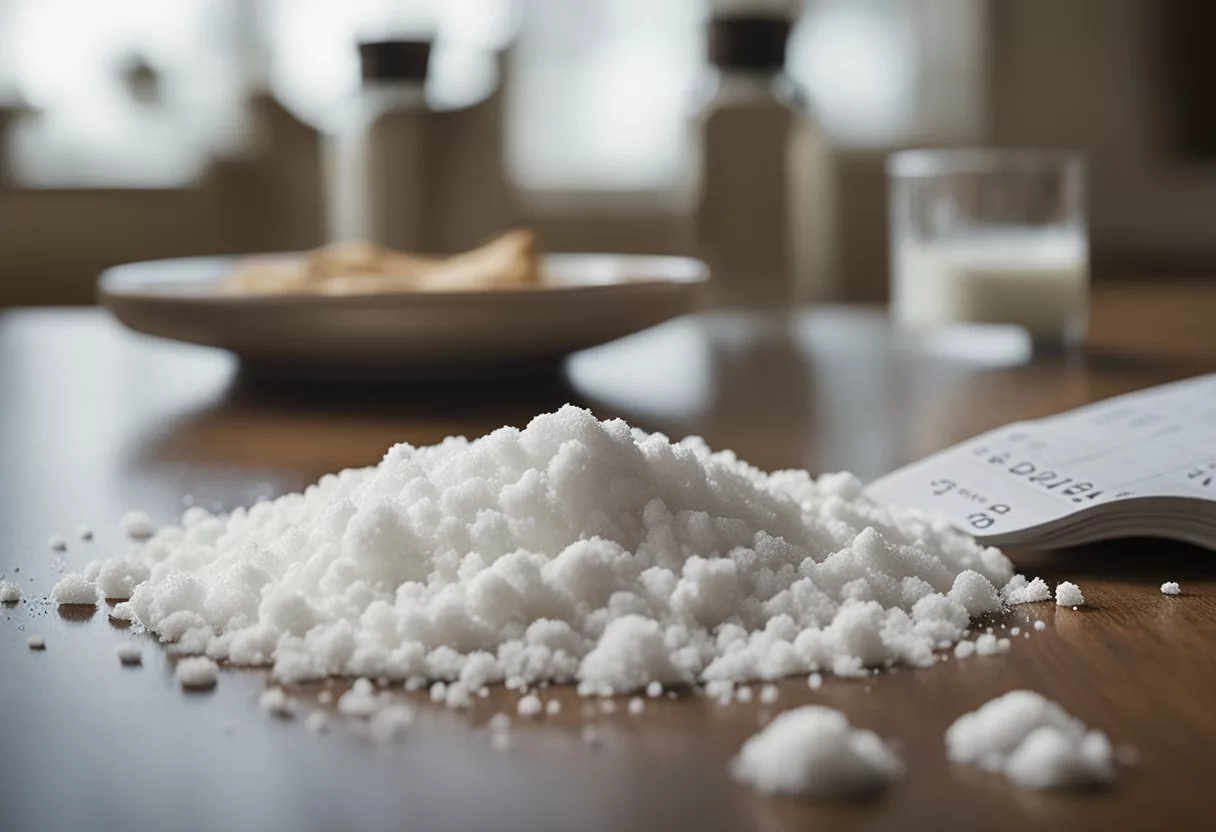
However, taking baking soda every day can have consequences for your body. Baking soda is highly alkaline, and consuming too much of it can disrupt the natural pH balance in your body. This can lead to a range of health issues, including metabolic alkalosis, which can cause nausea, vomiting, and seizures. In addition, consuming baking soda can also lead to electrolyte imbalances, which can cause muscle weakness, cramps, and irregular heartbeats.
While there may be some benefits to using baking soda in moderation, it is important to be aware of the potential risks of consuming it regularly. In this article, we will explore what happens to your body if you take baking soda every day, and what you can do to stay healthy while using this common household item.
Sodium Bicarbonate – Baking Soda

Chemical Composition and Properties
Baking soda, also known as sodium bicarbonate, is an alkaline substance with the chemical formula NaHCO3. It is a white, crystalline powder that is slightly salty and alkaline in taste. Baking soda is a weak base and can neutralize acids, which is why it is often used in baking and cooking.
Baking soda is a versatile compound that has many uses beyond the kitchen. It is commonly used as a cleaning agent, deodorizer, and even as a home remedy for various ailments. Baking soda is also used in medical settings as an antacid to neutralize stomach acid.
Baking Soda as a Home Remedy
Baking soda is often used as a home remedy for various ailments due to its alkaline properties. It is believed that baking soda can help balance the body’s pH levels and neutralize excess acid in the body.
One common use of baking soda as a home remedy is for heartburn and acid reflux. Baking soda is thought to neutralize stomach acid and provide relief from these symptoms. However, it is important to note that taking baking soda in large amounts can be harmful and may cause side effects such as nausea and vomiting.
Baking soda is also used as a natural remedy for urinary tract infections (UTIs) and kidney stones. It is believed that baking soda can help alkalize the urine and make it less acidic, which can help prevent the growth of bacteria and dissolve kidney stones. However, there is limited scientific evidence to support these claims, and it is important to consult a healthcare professional before using baking soda as a home remedy for these conditions.
In conclusion, baking soda is a versatile compound with many uses beyond the kitchen. It is a weak base that can neutralize acids, and is often used as a home remedy for various ailments due to its alkaline properties. However, it is important to use baking soda in moderation and consult a healthcare professional before using it as a home remedy for any condition.
Digestive System Effects
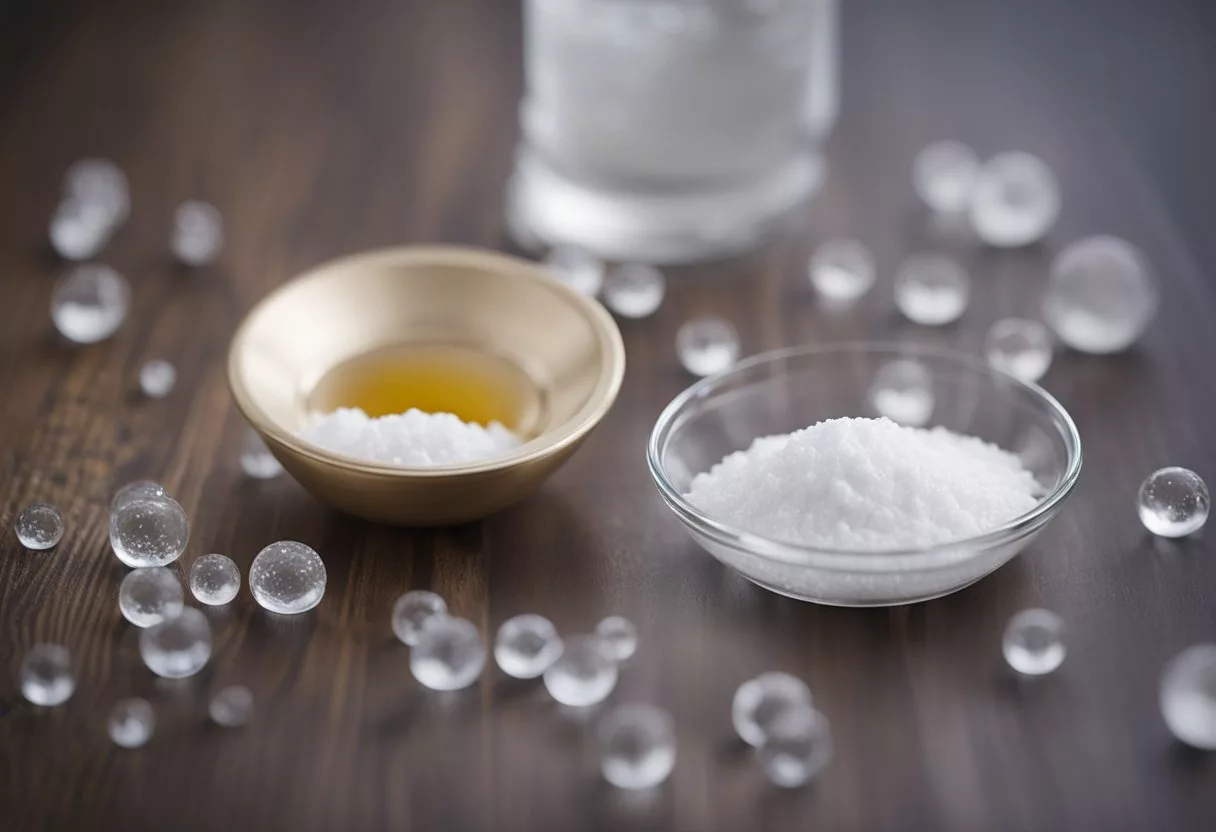
Relief for Acid Reflux and Heartburn
Baking soda has been used as a natural remedy for acid reflux and heartburn for many years. It works by neutralizing stomach acid, which is the cause of acid reflux and heartburn. When baking soda is mixed with water, it creates a solution that can help reduce the symptoms of acid reflux and heartburn. However, it is important to note that baking soda should be used in moderation as excessive consumption can lead to serious health problems.
Impact on Indigestion and Gas
Baking soda is also believed to have a positive impact on indigestion and gas. It works by neutralizing stomach acid and reducing the acidity in the stomach, which can help alleviate symptoms of indigestion and gas. However, it is important to note that excessive consumption of baking soda can lead to serious health problems such as electrolyte imbalances and kidney damage.
Potential Risks for Digestive Health
While baking soda can provide relief for certain digestive issues, excessive consumption can have negative effects on digestive health. Baking soda is highly alkaline and can disrupt the natural pH balance of the stomach, which can lead to digestive problems such as upset stomach, bloating, and acid reflux. Additionally, excessive consumption of baking soda can lead to serious health problems such as electrolyte imbalances and kidney damage.
It is important to note that baking soda should be used in moderation and under the guidance of a healthcare professional. Individuals with pre-existing digestive health conditions such as acid reflux, indigestion, and ulcers should consult with their healthcare provider before using baking soda as a natural remedy.
Renal Health Implications
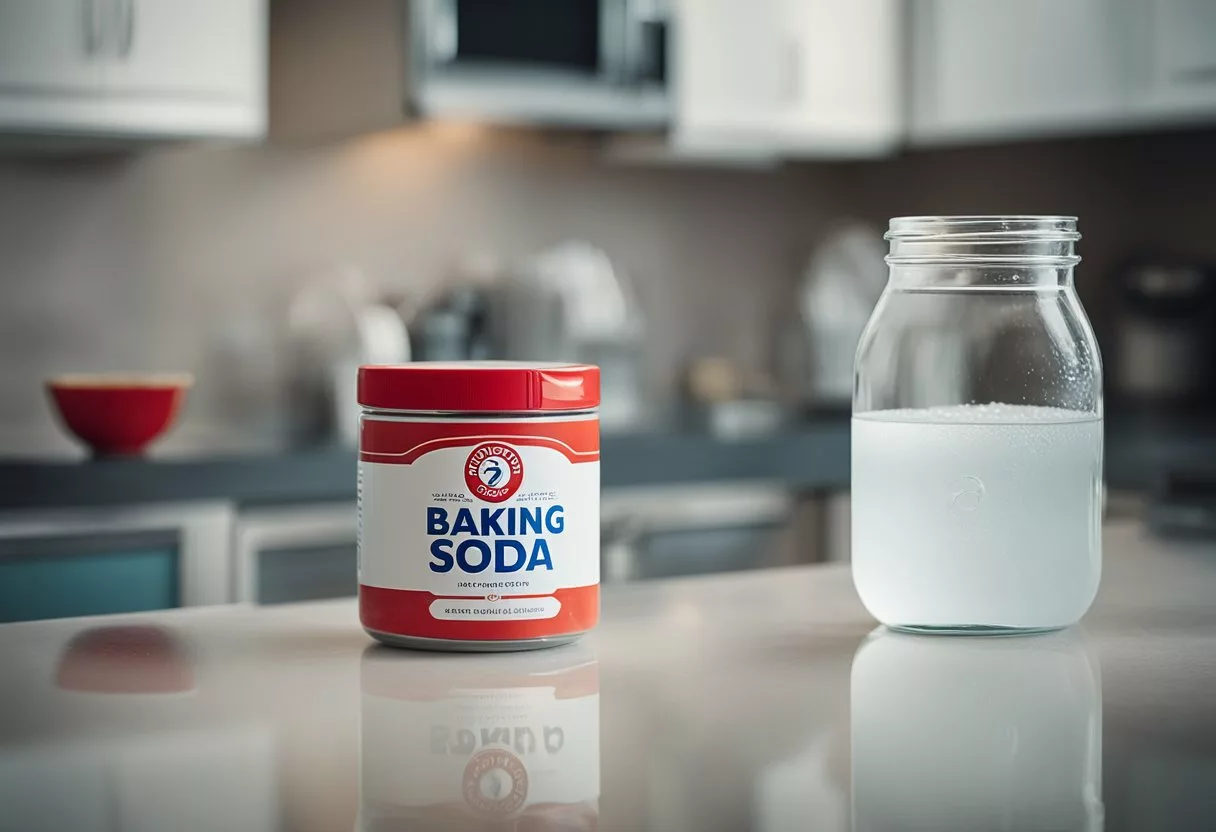
Baking Soda and Chronic Kidney Disease
Chronic kidney disease (CKD) is a condition in which the kidneys gradually lose function over time. It is a common condition that affects millions of people worldwide. One of the treatments for CKD is the use of sodium bicarbonate, also known as baking soda. According to Healthline, the benefits of treating metabolic acidosis with sodium bicarbonate include preventing more severe metabolic acidosis, slowing CKD progression, and preventing complications of CKD progression.
However, it is important to note that sodium bicarbonate should only be used under the guidance of a healthcare professional. High doses of sodium bicarbonate can cause fluid retention and worsen blood pressure control in CKD patients. Sodium bicarbonate may also reduce serum potassium, which can be beneficial for people with later stages of CKD.
Risk of Kidney Stones and Failure
While sodium bicarbonate may have benefits for CKD patients, it is also important to consider the potential risks. One of the risks associated with long-term use of sodium bicarbonate is an increased risk of kidney stones. According to Medical News Today, sodium bicarbonate can increase the pH level of urine, which can lead to the formation of kidney stones.
In addition, high doses of sodium bicarbonate can also increase the risk of kidney failure, particularly in people with underlying kidney disease. This is because the kidneys may have difficulty excreting the excess sodium and bicarbonate, which can lead to a buildup of these substances in the body.
In summary, while sodium bicarbonate may have benefits for CKD patients, it is important to use it under the guidance of a healthcare professional and be aware of the potential risks, such as an increased risk of kidney stones and kidney failure.
Effects on Skin and Oral Health
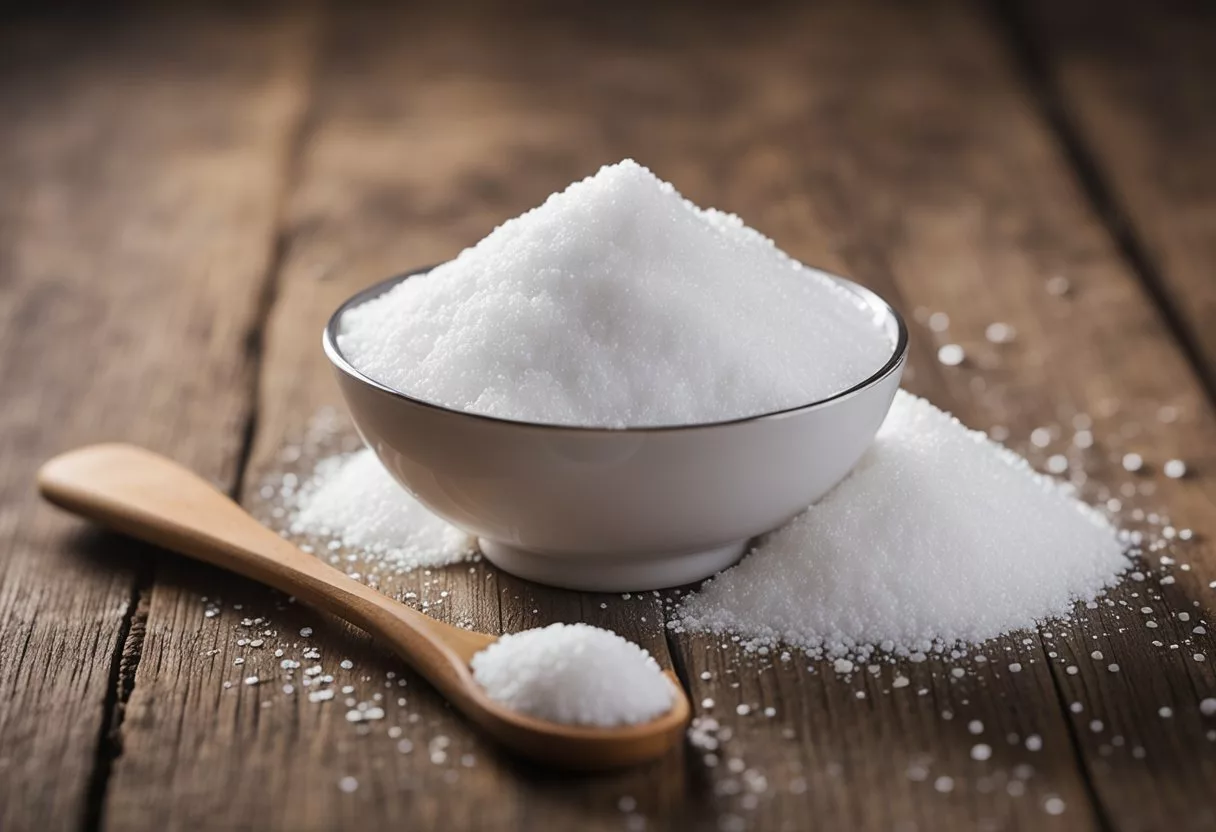
Skin Applications and Concerns
Baking soda is a common ingredient in many skincare products due to its exfoliating and antibacterial properties. It can help remove dead skin cells, unclog pores, and reduce inflammation. However, using baking soda on the skin can also cause irritation, especially for those with sensitive skin. It is recommended to do a patch test before using baking soda on the face or body.
Baking soda can also be used to relieve itching and stings caused by insect bites, poison ivy, and other skin irritations. However, it is important to note that baking soda should not be used on open wounds or broken skin as it can cause further irritation.
For those with acne-prone skin, baking soda can be used as a spot treatment to help reduce inflammation and redness. However, it should not be used as a daily cleanser as it can disrupt the skin’s natural pH balance and lead to further breakouts.
Oral Health Benefits and Precautions
Baking soda has been shown to have several benefits for oral health. It can help remove plaque from teeth and gums, neutralize bad breath, and even whiten teeth. However, it is important to use baking soda in moderation as it can be abrasive and damage tooth enamel with frequent use.
Using baking soda as a mouthwash can also help neutralize the acids in the mouth and reduce the risk of tooth decay. However, it should not be used as a replacement for regular brushing and flossing.
Overall, while baking soda can have beneficial effects on both skin and oral health, it is important to use it in moderation and with caution. Those with sensitive skin or teeth should consult with a healthcare professional before using baking soda as a skincare or oral health product.
Influence on Bodily Systems
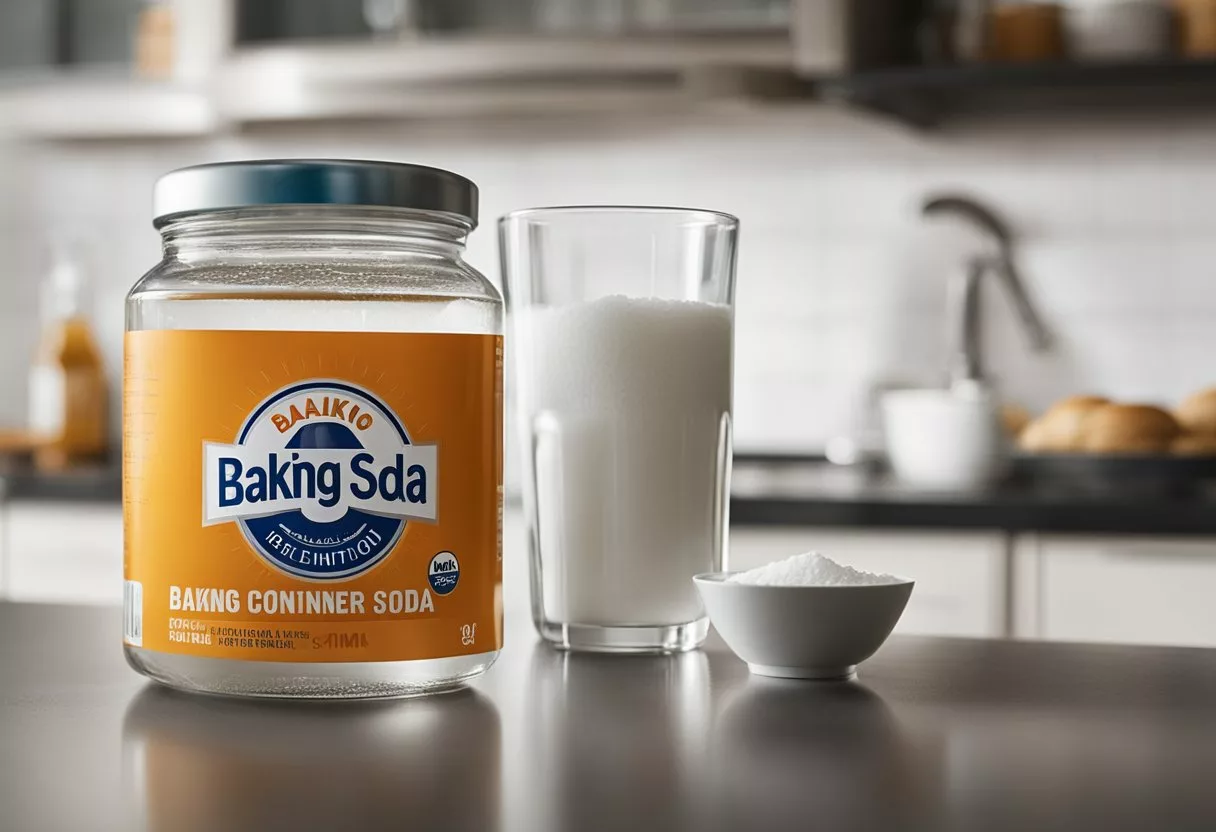
Cardiovascular System and Blood Pressure
Baking soda has been found to have an impact on the cardiovascular system and blood pressure. According to a study published in the Journal of Clinical Investigation, consuming baking soda can help reduce high blood pressure by balancing the pH levels in the blood. However, it is important to note that excessive consumption of baking soda can lead to sodium overload, which can increase blood pressure. Therefore, it is recommended to consume baking soda in moderation and under the guidance of a healthcare professional.
Musculoskeletal Effects and Athletic Performance
Baking soda has been shown to have musculoskeletal effects and can enhance athletic performance. According to a study published in the Journal of the International Society of Sports Nutrition, consuming baking soda can help reduce lactic acid buildup in muscles, which can improve endurance and athletic performance. However, it is important to note that excessive consumption of baking soda can lead to negative side effects such as gastrointestinal distress and dehydration. Therefore, it is recommended to consume baking soda in moderation and under the guidance of a healthcare professional.
Immune System and Infection Resistance
Baking soda has antibacterial and anti-inflammatory properties, which can help boost the immune system and enhance infection resistance. According to a study published in the Journal of Immunology, consuming baking soda can help stimulate the immune system and reduce inflammation. However, it is important to note that excessive consumption of baking soda can lead to negative side effects such as metabolic alkalosis, which can disrupt the body’s acid-base balance. Therefore, it is recommended to consume baking soda in moderation and under the guidance of a healthcare professional.
Interactions with Medications and Treatments
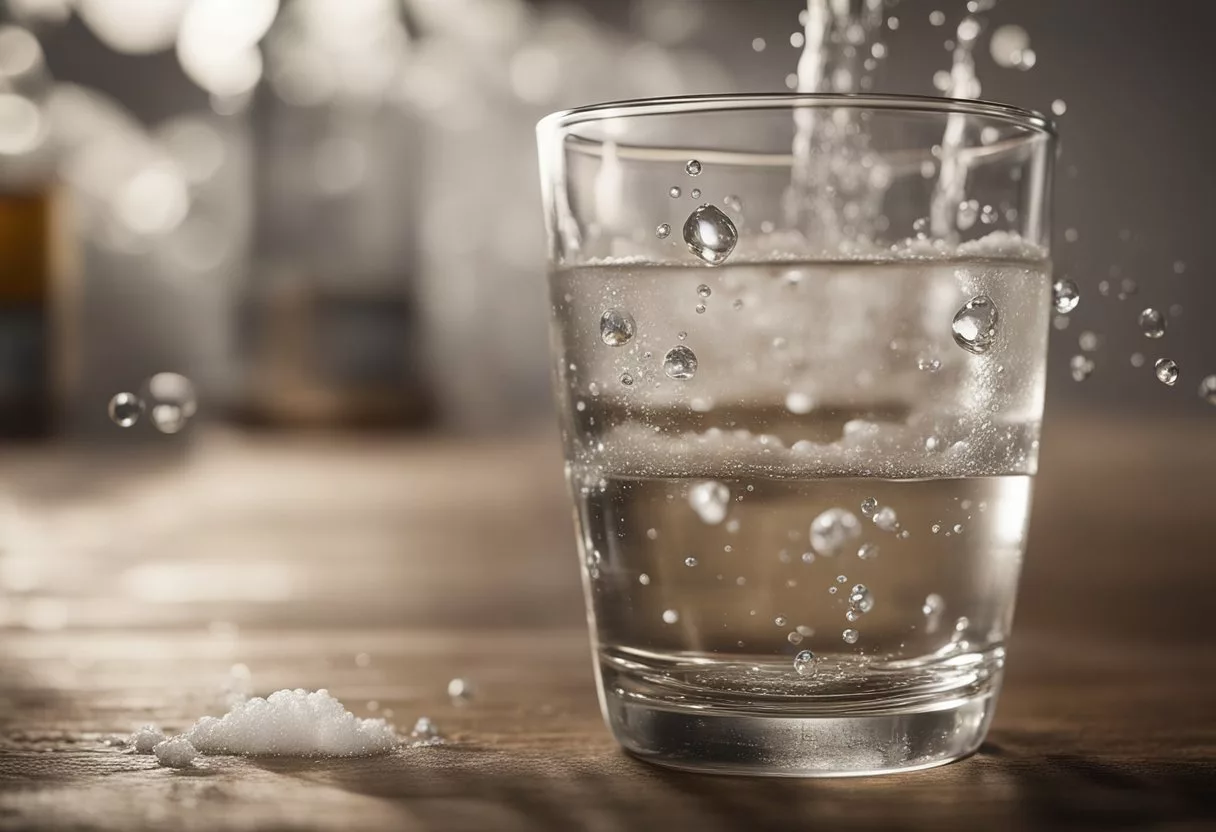
Influence on Medication Absorption
Taking baking soda every day can affect the absorption of certain medications. According to WebMD, baking soda can slow down the rate at which the body absorbs some medicines and change the way others work. Therefore, it is recommended to avoid taking baking soda within two hours of other medications to prevent any potential interactions.
Baking soda can also change the pH level in the stomach, which can affect the absorption of prescription drugs. This is because some medications require a specific pH level in the stomach to be absorbed properly. Therefore, it is important to talk to a doctor or pharmacist before taking baking soda if someone is on prescription medications.
Baking Soda and Cancer Treatments
Baking soda is not a substitute for cancer treatments such as chemotherapy. While some studies suggest that baking soda may have anti-inflammatory properties that could potentially help reduce inflammation from conditions like RA, there is no evidence to suggest that baking soda can cure cancer.
In fact, taking baking soda while undergoing cancer treatments can be dangerous. According to Drugs.com, baking soda can interact with chemotherapy drugs, making them less effective. Therefore, it is important for cancer patients to talk to their doctor before taking baking soda or any other supplements.
It is important to note that baking soda should not be used as a substitute for medical treatment. It is always recommended to talk to a doctor or healthcare professional before making any changes to medication or treatment plans.
Safety, Dosage, and Side Effects
Recommended Dosage and Overuse Risks
Baking soda is generally safe when consumed in small amounts, but taking it in large doses or for an extended period may lead to adverse effects. The recommended dosage of baking soda is ½ teaspoon dissolved in a glass of water, taken every 2 hours for acid indigestion or heartburn. However, it is important to note that taking baking soda excessively or for a prolonged period may lead to complications such as metabolic alkalosis, which can cause nausea, fatigue, and seizures.
Recognizing and Managing Side Effects
Baking soda may cause side effects such as stomach upset, gas, and bloating. These side effects are usually mild and go away on their own. However, if you experience severe side effects such as vomiting, abdominal pain, or blood in your stool, you should stop taking baking soda and seek medical attention immediately.
When to Consult a Healthcare Professional
If you have a history of kidney disease or high blood pressure, you should consult your healthcare professional before taking baking soda. Additionally, if you experience any adverse effects after taking baking soda, such as severe nausea or vomiting, you should contact your doctor or poison control center immediately.
In conclusion, while baking soda has several health benefits, it is important to take it in moderation and follow the recommended dosage. If you experience any adverse effects after taking baking soda, you should stop taking it immediately and seek medical attention if necessary.
Special Considerations
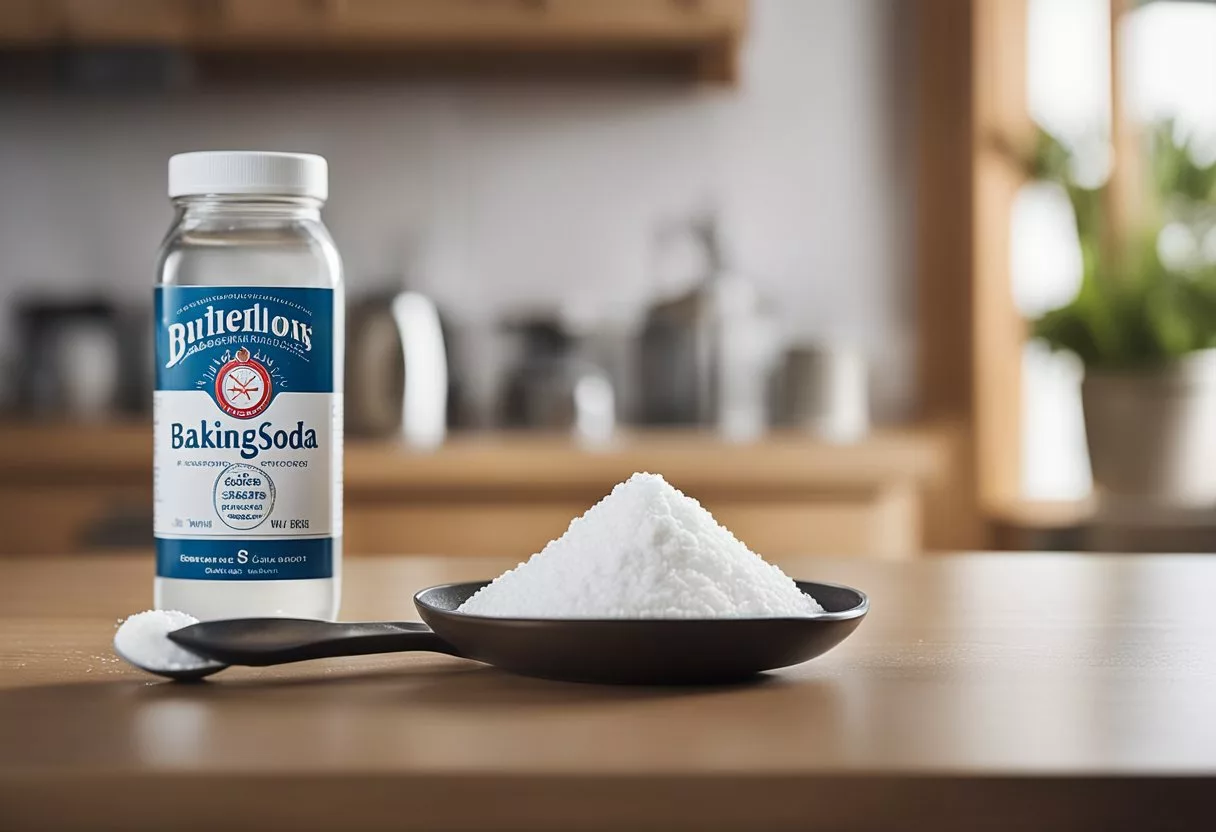
Use During Pregnancy and Childhood
There is limited research on the safety of consuming baking soda during pregnancy and childhood. However, it is generally recommended that pregnant women and children avoid taking baking soda as a daily supplement. This is because baking soda can alter the pH balance in the body, which may cause harm to the developing fetus or growing child.
Baking Soda for Individuals with Autoimmune Diseases
Individuals with autoimmune diseases, such as rheumatoid arthritis, should exercise caution when using baking soda as a supplement. Baking soda can interfere with the body’s natural pH balance, which may exacerbate symptoms of autoimmune diseases. It is recommended that individuals with autoimmune diseases consult with their healthcare provider before using baking soda as a daily supplement.
In general, it is important to use baking soda in moderation and under the guidance of a healthcare professional. While baking soda has many potential health benefits, excessive use can lead to negative side effects. It is important to be aware of the potential risks associated with consuming baking soda and to use it responsibly.
Alternative Uses and DIY Remedies

Household Cleaning and Deodorizing
Baking soda is a versatile household cleaning and deodorizing agent that can be used as an alternative to harsh chemicals. It is effective in cleaning carpets, drains, and removing mold and fungi. Mixing baking soda with vinegar or lemon juice can enhance its cleaning properties.
To use baking soda as a carpet cleaner, sprinkle it on the carpet, let it sit for 15-20 minutes, and then vacuum it up. For drain cleaning, pour a mixture of baking soda and vinegar down the drain, let it sit for a few minutes, and then flush it with hot water.
To remove mold and fungi, mix baking soda with water to form a paste and apply it to the affected area. Let it sit for a few minutes and then scrub it with a brush. Rinse the area with water and repeat the process if necessary.
Natural Remedies for Minor Ailments
Baking soda can also be used as a home remedy for minor ailments such as cold, flu, and sore throat. It can be used as a gargle to relieve sore throat and as a nasal rinse to relieve congestion.
To make a baking soda gargle, mix 1/4 teaspoon of baking soda in 8 ounces of warm water and gargle with it several times a day. To make a nasal rinse, mix 1/4 teaspoon of baking soda and 1/4 teaspoon of salt in 8 ounces of warm water and use a neti pot to rinse the nasal passages.
It is important to note that baking soda should not be used as a substitute for medical treatment. If symptoms persist or worsen, it is recommended to seek medical advice.